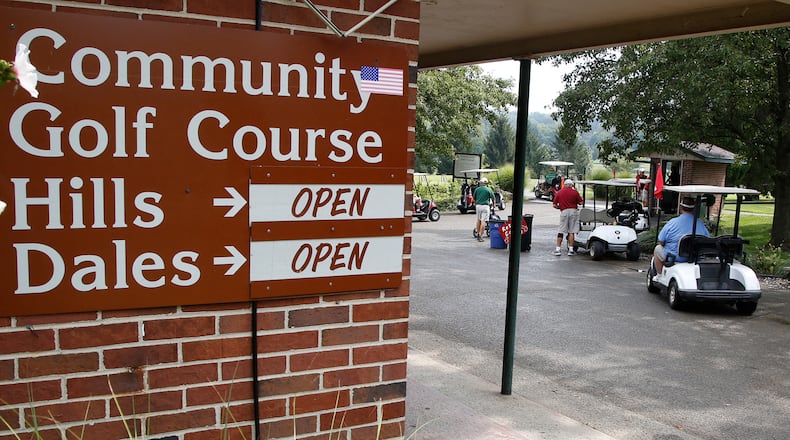In September, the city terminated its contract with golf pro Chadwick Walther and his company, Walther Golf, LLC —which Dayton had paid $914,988 since 2012 to manage the course — with an agreement not to pursue civil action for possible contract violations.
The termination agreement saved the city about $150,000, which was the best outcome considering it still had contractual obligations with Walther Golf and did not have definitive proof who stole the carts, city officials said.
“The settlement agreement permitted the city to retain funds that otherwise Walther Golf would have been entitled to legally,” said Barbara Doseck, Dayton’s law director.
Under the agreement, Walther and his company released the city from any legal claims related to his contract.
The I-Team requested the full investigative record in September, but city officials claimed the investigation was ongoing until December. The 10-page investigative record was obtained this week. In it, the subject's name is redacted, but the report refers to him as the "head golf pro for Community Golf Course."
The records say the pro quickly racked up debt and failed to make payments on his truck, his house or to his employees. According to the report, over an 18-month period he gambled away $136,240 at the casinos in Dayton and Lebanon, including $37,000 in July 2015 alone.
The Dayton police investigation began in April 2016 when employee Bob Bajek became suspicious after golf carts disappeared from the course. Bajek told police he asked about the carts and was told they were out for servicing, but he checked with the company that does the servicing and was told they were not there.
The same day city officials asked Walther about the missing golf carts, he was hospitalized after attempting to commit suicide, according to the investigative report. The I-Team confirmed the suicide attempt through records obtained by Centerville police.
Walther’s sister told police her brother was battling depression and had a “severe” gambling addiction, a police report states.
In its investigation into the golf course, Dayton Police determined a total of 19 of the course’s 108 golf carts were missing.
Investigators also suspected the golf pro didn’t deposit three days of cash deposits totaling $4,498, as required under his contract with the city.
He was supposed to deposit all daily gross receipts from the management and operation of the golf course in a city-designated bank account.
Police also found eight people who had given the golf pro up to $1,470 in cash for privileges at the course but the money was never deposited, investigative records said. The total amount of these payments was $4,175. Most of the customers interviewed said they were willing to testify in court.
Under its contract with Walther Golf, LLC, the city had the right to immediately terminate the agreement if the contractor engaged in unethical conduct or violated or allegedly violated any federal, state or local law or rule.
But the investigation did not produce strong evidence about who stole the golf carts, and the city could have been on the hook for some payments, city officials said.
The settlement agreement ensured the city retained $150,000 it would have been contractually obligated to pay to Walther Golf for golf cart rental and driving range fees, merchandise sales and a monthly management fee, the city said.
“There are provisions within that permit termination, but those are all open to interpretation and we made our interpretation,” said Doseck. “By ending the contract in April, the city was not required to make any of those payments.”
The city has released Walther Golf from all claims related to the company’s performance under the golf agreement, based on the information available at the signing of the settlement agreement.
According to the agreement, the city has a two-year window to seek relief for claims against Walther Golf if new information is discovered about potential contract breaches.
City officials said they have implemented new policies and measures to deter future issues at its golf courses.
The city now requires its courses to take a daily inventory of golf carts, and it has expanded its audits to include additional golf course property, the city said.
The city also plans to install security cameras at certain locations on its golf courses, and it has changed check-in procedures at the pro shop.
The city will need to replace the missing golf carts, which on average each had an estimated value of $2,775. The city urges members of the public with information about the carts to contact the police department.
Reporters sought comment from Walther through his attorney John Paul Rion, who declined to comment.
INVESTIGATION
This report came about after months of digging into why money and equipment went missing at the city-owned Dayton Community Golf Course. The type of reporting is made possible through your subscriptions and support for our print and online products. For more I-Team stories, go to DaytonDailyNews.com.


